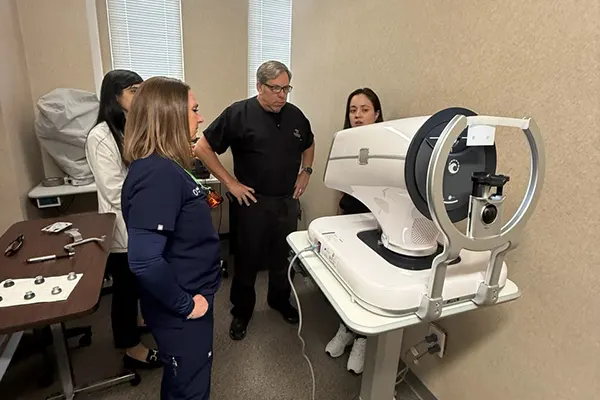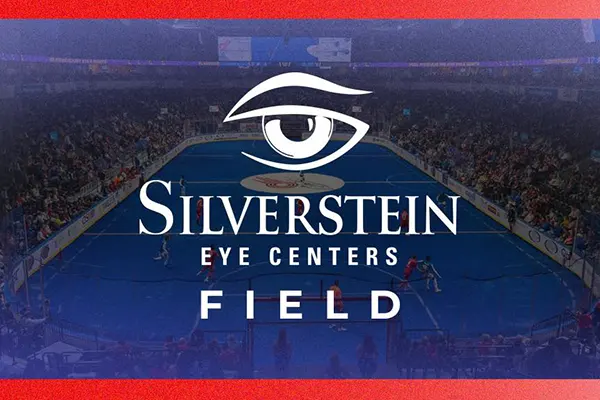Eye Flashes and Floaters
What are Eye Flashes and Floaters?
While almost everyone sees a few spots at one time or another, they can occur more frequently and become more noticeable as you grow older. If you notice a sudden change in the number or size of spots, you must schedule a dilated exam as soon as possible so that you can be sure they are not the result of a more serious problem.
Definition
Spots (floaters) are small, semi-transparent or cloudy specks or particles within the eye that become noticeable when they fall within the line of sight. They may also appear with flashes of light.
What Causes Them?
The inner part of the eye is made up of a clear, jelly-like fluid known as the vitreous. Small flecks of protein and condensation form in the eye’s vitreous gel, resulting in these floaters.
When flashes of light occur causing spots to become noticeable, it can be a result of the jelly-like vitreous shrinking and pulling on the retina. This tugging action stimulates the retinal receptor cells to “fire,” causing the perception of light flashes.
Can Flashes and Floaters Cause Blindness?
Most spots are normal and rarely cause visual loss, but floaters can indicate more serious problems. If you notice a change in the number and size of spots, a comprehensive eye examination is necessary in order to determine the cause.
On rare occasions, vitreous detachment can cause small tears or holes in the retina. The damaged part of the retina subsequently does not work properly and a blind spot in vision results. If untreated, retinal tears or holes can continue to worsen and severe vision loss can result if the retina becomes detached.
Treatment Options
While flashes and floaters are normally not serious or treatable, they can be symptoms or signs of a retinal tear or detachment. In this case, laser treatment may be required to seal the tear, and if the retina is detached, more extensive surgical intervention will be necessary. If you notice a sudden increase or change in the number and type of spots and floaters, schedule a dilated eye examination immediately.


